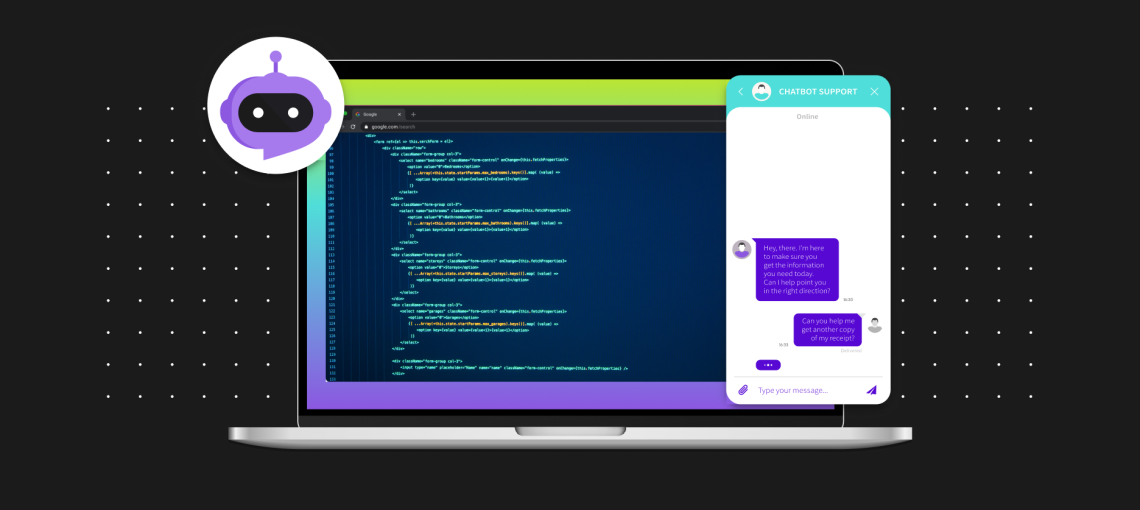The pace of technological advancements we’re seeing in this early part of the 21st century is amazing, almost unbelievable. And now, with the launch of ChatGPT, businesses have the opportunity to utilize AI applications to help them to make decisions faster and more accurately than ever before.
Atlantic BT has been in business since 1998 and has helped over 1,000 businesses to capitalize on the past 25 years of emerging technological advancements. We’re using this deep experience to help our clients enter this new era of technology, artificial intelligence, as well.
In this article, we’ll discuss how “digital transformation” has progressed from data collection and analysis, to automation, and now artificial intelligence strategies. Then we’ll outline the steps necessary to implement AI applications in your business.
The Impact of ChatGPT on Business: Opportunities and Challenges with AI Applications
OpenAI brought Artificial Intelligence to the mainstream with its 2022 launch of ChatGPT. And it still reigns supreme today as the most powerful and versatile tool for natural language processing available to the general public.
One of the key features that sets ChatGPT apart from other AI applications is its ability to generate text that is both natural and coherent, making it well-suited for tools like chatbots and other conversational agents. Which makes it a game changer for businesses. With AI technology, businesses can greatly enhance their operations, improve customer experiences, decrease costs, and further drive innovation.
However, this fast-paced technological innovation has created some challenges for businesses as well. From labor shortages, to inflation, cost limitations, and increased competition, organizations are under immense pressure to boost productivity and maintain their competitiveness. (To be fair, this has always been the case, but it seems to be even more important “now.”)
Incorporating AI applications into a business isn’t much different than the process a business would have gone through when it incorporated any other new technology of its time.
Innovative business leaders, especially those at the enterprise-level, have already turned their focus towards leveraging automation and artificial intelligence (AI) as a solution to bridge productivity gaps. Which means that companies who still haven’t embraced AI face the possibility of falling behind. Lack of understanding, budgeting concerns, or waiting for the technology to mature are some of the reasons holding companies back. While these challenges exist, there are ways to overcome them and successfully implement AI applications in business processes.
The AI Journey From Data Collection to Digital Transformation
Sophisticated technologies are evolving rapidly. These advancements present businesses with the opportunity to revolutionize their day-to-day processes and decision-making. They can do this by incorporating advanced automation, artificial intelligence, and context that goes beyond traditional organizational boundaries.
However, achieving this kind of transformation requires a comprehensive understanding not only of the potential offered by new technologies, but also of how existing information systems interconnect and where current business processes can be optimized.
Most businesses have already recognized the power of automating mundane processes. But now with the use AI applications, we can pass some of the analyzing and decision making on to technology to handle as well. Data collection, automation, and now AI all play important roles in a company’s overall digital transformation strategy. Here’s how:
Data Collection and Processing.
Collecting data from various sources and processing it to make it usable, is pivotal for a business. Businesses collect a wide range of data to help them make informed decisions, improve operations, and better understand their customers. This could involve setting up data collection mechanisms, cleaning the data, and storing it in a structured format.
Automation.
Automation technologies can streamline business processes and increase efficiency. It is essentially programming robots to follow a set of instructions – If ‘A’ is specified, the robot will take action ‘B’. The rules are defined by humans, and the robots just carry out the commands. The goal is to liberate people from monotonous tasks that are labor intensive and thus often ridden with errors.
The majority of automation utilizes software to move data from one place to another. As an example, take this project Atlantic BT completed for Stan Johnson Co. They wanted to improve their integration between their Drupal website and Salesforce. There were areas of information that would be added or updated in Salesforce and then manually re-done in the website. Atlantic BT enhanced the custom integration to include relevant data, set up on a frequent sync, ensuring consistency across two business critical systems. Here’s a link to the Stan Johnson case study.
While automation is merely taking orders, AI applications are designed to actually learn and then act on what they learn.
Artificial Intelligence.
With automation in place and a wealth of data available, companies can proceed with implementing AI applications. The purpose of AI is to imitate the human mind on a higher level – but in a very specific and limited number of tasks. Thus, AI applications will observe patterns and results of prior experiences in order to carry out tasks.
Rather than just following instructions, like an automated application, AI will figure out and act on what it has discovered. This may involve utilizing machine learning algorithms to extract insights from data or incorporating AI-powered solutions such as chatbots or recommendation systems.
But there’s even another distinction when talking about AI. (We won’t go too far down the rabbit hole). Narrow AI is a system that has been trained for a specific task (like ChatGPT or DALL-E). General AI is the more sci-fi scenario of understanding and learning in any domain like humans can (like GLaDOS or Bender).
When we discuss AI applications in business, we’re talking about narrow AI. Why? General AI doesn’t exist yet!
Digital Transformation.
Armed with insights derived from AI, companies can initiate significant changes in their business processes, models, and culture. Digital transformation is the practice of using technology to radically change your business. It’s about leveraging all the digital tools at your disposal – data analytics, automation, AI applications – to fundamentally transform how your business operates and makes decisions.
A Strategic Roadmap for Implementing AI Applications in Business
Incorporating artificial intelligence technologies into a business isn’t much different than the process a business would have gone through when it incorporated any other new technology of its time. Such as, the internet, social media, e-commerce, smart phones, and cloud computing.
When we began building websites, it was to help businesses make use of new technology – the internet. Same theory with AI – others are already doing the heavy lifting to innovate AI technology, we’re simply helping clients to use that technology to advance their business.
A few years ago, we wrote a guide to help businesses manage complex development projects. Since implementing AI is basically a “complex development project”, these same guidelines apply.
Here is a high-level overview of how any business can implement AI applications into their business operations today:
1. Assess Your Business Needs
The first step in AI implementation is to assess your business needs and identify the areas where AI can add value. Check out this article with practical use cases for where AI applications can be implemented across many common business departments like accounting, human resources and marketing.
Partnering with an AI Consultant, like Atlantic BT, will allow you to lean on our 25 years of experience to help you to flush out your business goals, acknowledge your pain points, and identify opportunities for improvement. This will help you better prioritize AI use cases and define clear objectives for your AI projects.
2. Data Collection and Preparation
AI relies on high-quality data to generate accurate insights and predictions. Your data may need to be cleaned, processed, and labeled to ensure it is suitable for AI model training.
3. Model Development and Training
AI models are the core components of AI systems. And if you do not have someone in your organization with development experience, you should definitely consider partnering with an AI Consultant to help you design and develop AI models using appropriate algorithms and techniques.
These models will need to be trained using your prepared data and fine-tuned to optimize performance. Selecting the right AI frameworks and tools for model development are part of the process.
4. Integration and Deployment
Once your AI models are trained and validated, they need to be integrated into your existing systems or applications. Again, you’ll want someone experienced to ensure smooth data flow and compatibility with your infrastructure.
5. Monitoring and Evaluation
After AI deployment, it is crucial to monitor the performance of your AI applications and evaluate their impact on your business.
6. Continuous Improvement
Like any other technology, AI is an iterative process that requires continuous improvement and optimization. Your AI applications will require updates to ensure they remain effective and secure. And as your business needs evolve, your systems will need to evolve with them.
Use this link to download our free step-by-step guide for how to manage a complex development project.
Partnering with Atlantic BT as your AI Consultant
Implementing AI applications into your business can be a complex and challenging endeavor. Partnering with an AI consultant can provide the expertise, guidance, and support needed to ensure a successful AI implementation.
We’re excited for what the future of our own business operations look like with the AI enhancements we have planned at Atlantic BT. And we think it would be just as exciting to partner with other business leaders to do the same for their organizations.
Even if you aren’t sure what you want to do, but you just know that you don’t want to be left off the AI train, let’s still schedule a call. We can help you to discover the right opportunities for improvement through AI. And our technical expertise will help uncover any limitations within your organization’s infrastructure that may hinder its full potential.
Click here to book a consultant with the Atlantic BT team.
Atlantic BT
Atlantic BT has been building websites for 25 years. Great organizations, from startups to enterprise, trust us to design, develop, and secure their most important web projects. We deliver mission-critical technology and build powerful experiences that drive organizations to achieve their goals.






